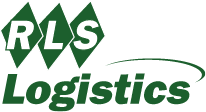We have seen it play out time and time again in the frozen order fulfillment industry. A client calls in with an amazing product with all the traits of a successful product launch. The product is unique with high demand, the brand packaging is creative, it is available online, and the website is ready to sell directly to consumers. However, after exploring the details with the client, they appear not as close to launch as they may have originally thought.
Here are 4 considerations when selecting your D2C frozen fulfillment partner:
1. Pack Size
One of the many benefits of selling online is allowing your customers options for purchasing. Customers like to have the power to choose what and when they want it. Mixing flavors is encouraged to allow the buyer the variety they desire. Approaching each order individually will go a long way with your customers; lower price points and/or free shipping are available, and the more you purchase, the more you are encouraged.
Customers like to feel valued and enjoy loyalty programs such as free shipping. However, there are also benefits of limiting orders to pack sizes. Whether it is a 6-pack, 12-pack, 18-pack, or 24-pack, developing branded packaging around those pack sizes ensures the product arrives to your customer in good condition and at the proper temperature. Additionally, managing cold storage inventory is easier when offering specific pack sizes. Decide how many packs you want to offer and design your packaging around those pack sizes.
2. Packaging
There are many choices regarding the packaging of frozen order fulfillment. Packaging supply companies are continually improving the R-values of their products. The higher the R-value, the greater the insulating power. However, more or thicker insulation and higher R-value do not always mean they are better in your application. There are many types of insulated packaging to choose from.
Here are some of the more commonly used:
- Polystyrene foam
- Plastic foam
- Vacuum insulated panels
- Reflective Materials
- Corrugated Fiberboard
- Thermal insulating bags
The purpose of good packaging material is to maintain product temperatures, reduce the evaporation of the dry ice or gel pack during transit, and eliminate or reduce damage. Thermal insulating packaging should be developed with 2 to 3-day ground transportation in mind. Most packaging companies can test how the product reacts under controlled circumstances. Chambers can be set to mimic weather and humidity conditions from any season and any time of year. Testing in these conditions will ensure your product holds up with your packaging all year and will determine the amount of dry ice or gel packs needed to ensure product integrity throughout the cold chain.
Another important factor to consider with packaging is sustainability. Many direct to consumer companies are developing recycled or sustainable packaging partnerships for their customers. Consumers like to see brands going above and beyond what is expected to help the environment.
3. Location, Location, Location
When searching for a 3PL to manage your frozen order fulfillment, it is important to consider their fulfillment center locations. Utilizing ground transportation in lieu of air freight is essential when controlling costs. Partnering with temperature-controlled fulfillment centers close to the densely populated areas will pay off in the long run. Understanding that two locations that may hit the same population within 2 to 3 days ground transportation does not necessarily mean they have similar shipping costs. The location closest to the most populated area will ultimately benefit from one-day ground shipping, thus saving in transportation.
A temperature-controlled fulfillment 3PL with multiple strategic locations should be considered before choosing multiple providers. Choosing one 3PL has benefits including one inventory system, developing a strong relationship with one provider, transportation buying power, duplicated systems, and a single onboarding process.
4. Choosing the Right 3PL
Investigating potential partners when choosing a 3PL company to handle your frozen fulfillment is important. It is imperative to do your research and, just as important, to be prepared to ask questions when engaging with a potential partner. Here are some good questions to ask when speaking with your sales representative:
- What are your hours of operation?
- Do you have any capacity constraints?
- Whose account number is used for shipping?
- When do I have to have my orders to you for fulfillment that day?
- What type of food safety program do you have?
- May I see your last audit?
- What type of reporting can we have?
- What are your key metrics?
- Do you have any minimums?
- What other services do you offer?
- Can I track my inventory online?
- What are your emergency plans?
- What is the main way you communicate?
- How do you handle conflict resolution?
- How long does the onboarding process take?
Any reputable 3PL company should be able to answer any of these questions. Additionally, scheduling a site visit should be considered. When on the tour, be sure to look for the cleanliness of the facility and ask questions about the temperatures of specific rooms. Also, speak to the people working at the site; you can tell a lot about the company’s culture by having simple conversations with those working there.
Launching new products in the frozen fulfillment space does not have to be intimidating. Following these simple yet poignant suggestions can ensure you are ready to launch and you have the right partners in place to assist you with your product launch so that you can focus on marketing your products.
If you are ready to take the step in and partner with a national frozen direct to consumer partner, contact RLS today.




